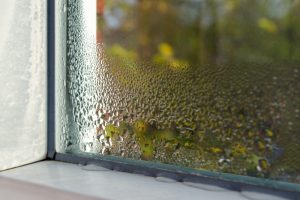Does My AC Help with High Humidity?

Humidity can be a homeowner’s nemesis, turning a comfortable living space into a clammy, sticky environment. It affects not just comfort but also health and the integrity of your home. In this blog post, we’ll delve into the role of your air conditioning system in managing humidity levels within your home. From understanding how AC systems decrease humidity to identifying common central air repairs in Bay Ridge, Brooklyn that could lead to rising humidity levels, we’ll cover it all.
Understanding Humidity
Humidity refers to the amount of moisture present in the air. High humidity levels can make a room feel warmer than it actually is, leading to discomfort and even mold growth. When humidity is high, it causes you to decrease the thermostat in an attempt to feel cooler. Ideally, indoor humidity levels should be between 30% and 50%.
How Air Conditioning Helps with High Humidity
Your air conditioning system plays a crucial role in reducing humidity levels in your home. It does so primarily through the evaporator coil, a key component of the AC unit. As warm air from inside your home is drawn into the AC system, it passes over the cold evaporator coil. This causes the moisture in the air to condense and collect on the coil, effectively removing it from the air. The cooled, dehumidified air is then circulated back into your home, providing both temperature and humidity control.
Common Issues That Cause Humidity Levels to Rise
While air conditioning systems are designed to regulate humidity levels, several factors can hinder their effectiveness:
- Improper AC sizing: An oversized or undersized AC unit may not adequately dehumidify your home.
- Dirty or clogged air filters: Dirty filters restrict airflow, reducing the efficiency of your AC system.
- Refrigerant leaks: Low refrigerant levels can impair the cooling and dehumidification process.
- Poor insulation or sealing: Air leaks in your home can allow humid outdoor air to enter, counteracting the efforts of your AC system.
- Malfunctioning thermostat: A faulty thermostat can lead to inaccurate temperature and humidity control.
- Lack of maintenance: Neglecting routine professional AC maintenance can lead to decreased AC performance and increased humidity levels.
Tips for Maintaining Optimal Humidity Levels with Your AC
To ensure that your air conditioning system effectively controls humidity levels in your home, consider the following tips:
- Schedule regular AC maintenance with our team so that we can clean the coils and perform a series of tasks that’ll keep your AC in top condition.
- Change air filters every one to three months, or as recommended by the manufacturer.
- Seal any air leaks in your home’s insulation and ductwork to prevent humid outdoor air from entering.
- Invest in a programmable thermostat to regulate temperature and humidity levels based on your preferences and schedule.
- Consider having us install a whole house dehumidifier if your AC system alone is unable to maintain comfortable humidity levels.
Don’t overlook the importance of proper AC maintenance and take proactive steps to keep humidity levels in check. Your comfort and well-being depend on it.
Serving Staten Island’s Heating and A/C needs since 1955. Contact the Bob Mims team to schedule an appointment for air conditioning repair in Bay Ridge, Brooklyn today!
